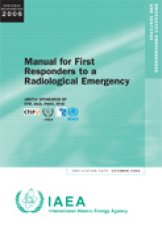This Department is responsible for formulating and delivering the IAEA’s development mandate. The Agency’s technical cooperation with Member States aims to promote tangible socioeconomic impacts, supporting the use of nuclear science and technology to address major sustainable development priorities at the national, regional and interregional levels. The organizational structure of the Department is shown here.
Division of Programme Support and Coordination
This Division develops strategies, guidelines and procedures for the IAEA’s technical cooperation programme. One of its key functions is to carry out financial monitoring and control for the programme and to develop and maintain TC programme data and information management systems. It develops tools for programme management, monitoring, training, self-evaluation and quality assurance, and is responsible for pursuing partnership opportunities and for liaison on corporate resource mobilization efforts.
Divisions for Africa, Asia and the Pacific, Europe, and Latin America and the Caribbean
These Divisions are responsible for developing, managing, monitoring and reviewing activities under the IAEA technical cooperation programme:
Division for Africa: Algeria, Angola, Benin, Botswana, Burkina Faso, Burundi, Cabo Verde, Cameroon, Central African Republic, Chad, Comoros, Congo, Côte d’Ivoire, Democratic Republic of the Congo, Djibouti, Egypt, Eritrea, Eswatini, Ethiopia, Gabon, Gambia, Ghana, Guinea, Mauritania, Kenya, Lesotho, Liberia, Libya, Madagascar, Malawi, Mali, Mauritius, Morocco, Mozambique, Namibia, Niger, Nigeria, Rwanda, Senegal, Seychelles, Sierra Leone, Somalia, South Africa, Sudan, Togo, Tunisia, Uganda, United Republic of Tanzania, Zambia and Zimbabwe.
Division for Asia and the Pacific: Afghanistan, Bahrain, Bangladesh, Brunei Darussalam, Cambodia, China, Fiji, Indonesia, Islamic Republic of Iran, Iraq, Israel, Jordan, Kuwait, Lao People’s Democratic Republic, Lebanon, Malaysia, Marshall Islands, Mongolia, Myanmar, Nepal, Oman, Pakistan, Palau, Papua New Guinea, Philippines, Qatar, Samoa, Saudi Arabia, Singapore, Sri Lanka, Syrian Arab Republic, State of Palestine, Thailand, Tonga, United Arab Emirates, Vanuatu, Viet Nam and Yemen.
Division for Europe: Albania, Armenia, Azerbaijan, Belarus, Bosnia and Herzegovina, Bulgaria, Croatia, Cyprus, Czech Republic, Estonia, Georgia, Greece, Hungary, Kazakhstan, Kyrgyzstan, Latvia, Lithuania, Malta, Montenegro, North Macedonia, Portugal, Poland, Republic of Moldova, Romania, Russian Federation, Serbia, Slovakia, Slovenia, Tajikistan, Turkmenistan, Türkiye, Ukraine and Uzbekistan.
Division for Latin America and the Caribbean: Antigua and Barbuda, Argentina, Bahamas, Barbados, Belize, Plurinational State of Bolivia, Brazil, Chile, Colombia, Costa Rica, Cuba, Dominica, Dominican Republic, Ecuador, El Salvador, Grenada, Guatemala, Guyana, Haiti, Honduras, Jamaica, Mexico, Nicaragua, Panama, Paraguay, Peru, Saint Kitts and Nevis, Saint Lucia, Saint Vincent and the Grenadines, Trinidad and Tobago, Uruguay and Bolivarian Republic of Venezuela.
Division of Programme of Action for Cancer Therapy
The Division is in charge of the Programme of Action for Cancer Therapy (PACT), which supports Member States expand access to health technologies, build skills and mobilize resources to develop a complete range of effective cancer services.






